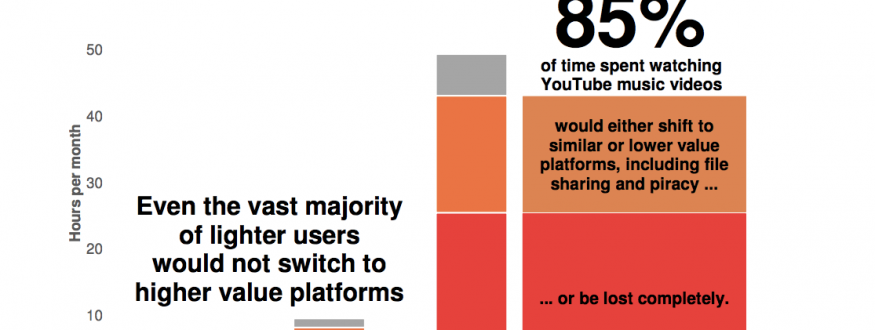The music industry is navigating a period of significant change. But while physical sales have been on the decline, advertising- and subscription-funded streaming have been a source of growth. In 2016 YouTube paid out over 1 billion USD to the music industry from ad revenue alone; and our Content ID allows the music industry to control their content on the platform, including the ability to make money from fan-uploaded music content.
Nonetheless, there is a lively debate about whether YouTube is good or bad for the music industry overall. To get to the bottom of this question, and to better understand the way the industry has changed in the digital age, we commissioned a study from RBB Economics. The study, which looks at exclusive YouTube data and a survey of 6,000 users across Germany, France, Italy and the U.K, will examine several aspects of the transformed industry in a series of papers being published over the coming weeks.
In the first paper, published today, RBB looks at the question of cannibalisation: does the fact that people listen to music on YouTube mean that they don’t use other—sometimes more lucrative—sources of music?
The study finds that this is not the case. In fact, if YouTube didn’t exist, 85% of time spent on YouTube would move to lower value channels, and would result in a significant increase in piracy.
The researchers find that significant cannibalisation by YouTube of other legitimate music channels is unlikely, for a few reasons:
-
Based on survey data they find that, in the absence of YouTube, most time spent listening to music on YouTube would be lost or shifted to lower value music channels.
-
In the absence of YouTube, time spent listening to pirated content would increase by 29%, suggesting that people are going to YouTube instead of pirating music.
-
And further, blocking music from YouTube does not lead to an increase in streams on other platforms.
The cumulative effect of these findings is that YouTube has a market expansion effect, not a cannibalising one.
In coming weeks, RBB will release further papers on other aspects of the digital music world and YouTube’s role therein. We will update this post with their findings.

